Home > Virginia > Virginia’s Cut Flower Industry Continues to Bloom
Virginia’s Cut Flower Industry Continues to Bloom
In partnership with: Virginia Department of Agriculture and Consumer Services
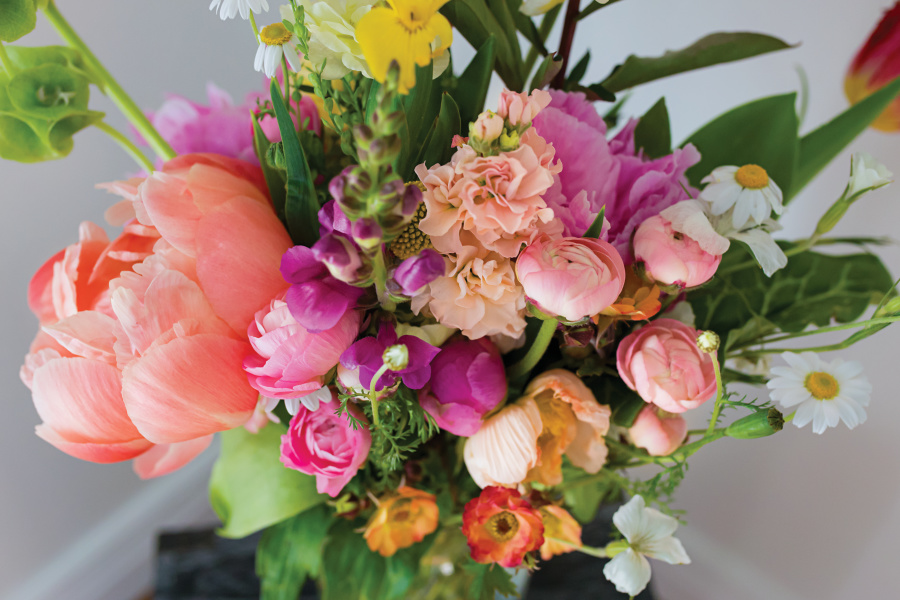
From stunning dahlias to heirloom mums to sweet peonies, a bouquet of flowers is sure to brighten anyone’s day. For several of Virginia’s small growers, cut flowers have become more than a pick-me-up.
Harmony Harvest Farm
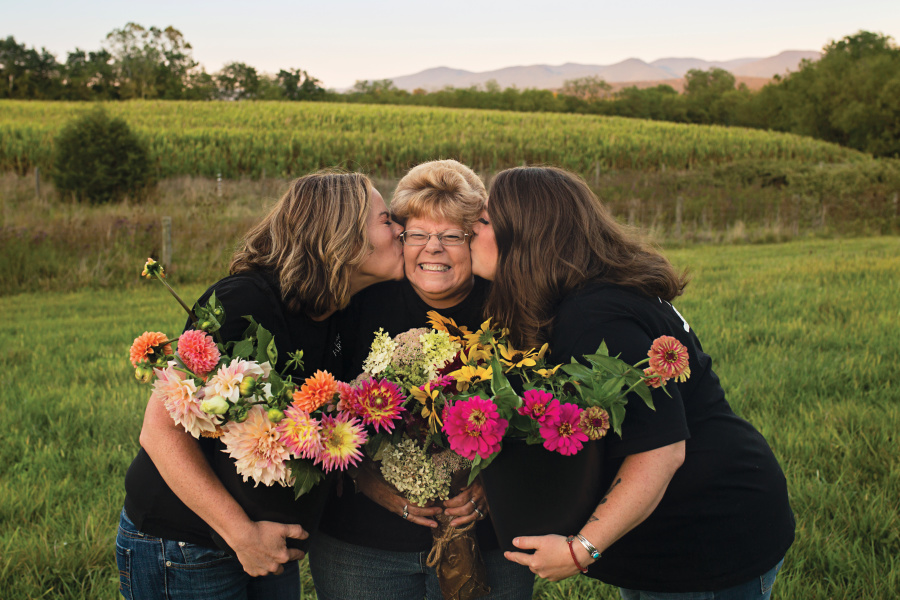
“We’re building a new agricultural resurgence off of the visual eye candy that flowers provide. You can draw someone in with a one-second image of a beautiful flower,” says Jessica Hall, owner and COO of Harmony Harvest Farm in Weyers Cave.
Hall operates 7 field acres of cut flowers and seven high tunnels with her sister, Stephanie, and mom, Chris. They grow more than 200 varieties of flowers, including their signature heirloom mums, anemones, ranunculus and more. Growing up in agriculture, Jessica studied horticulture in college and knew she always wanted to work in the green industry.
“We initially grew vegetables, but then on a family beach trip, we wondered where florists bought all their flowers. Most of the country’s cut flower market was imported,” Hall says. “So we found an untapped niche market and started growing flowers.”
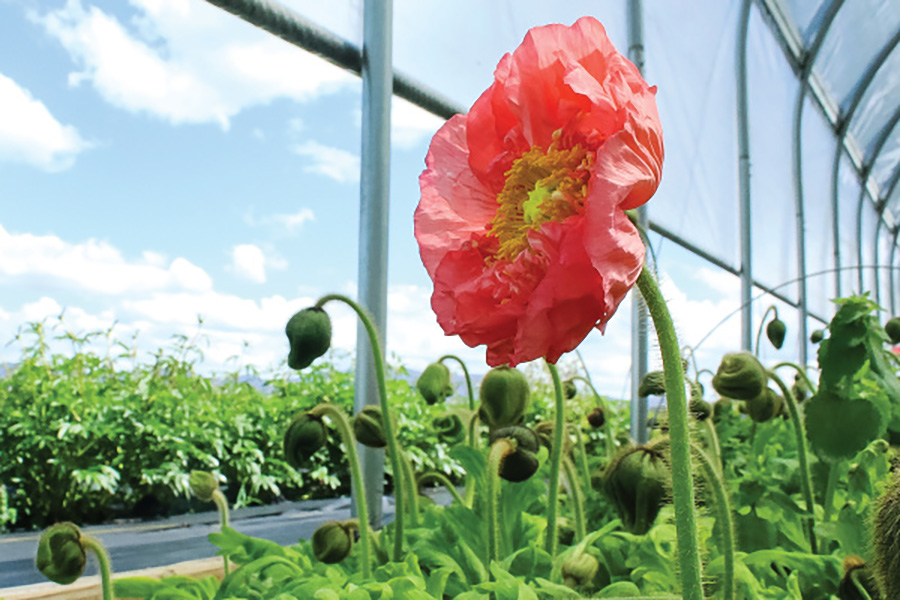
Harmony Harvest began in 2013 and sustained the business with wedding services. In 2015, the family started testing curated, shipped flower boxes with great success.
“We were able to connect the world with an experience of feeling like they’re on the family farm,” Hall says.
As Harmony Harvest continues to grow, Hall says they want to incorporate more educational experiences, like allowing consumers to pick their own flowers and introducing them to the concept of a victory garden.
See more: Virginia Honey Project Promotes Bee Habitat and Awareness
Tupelo Farm & Garden
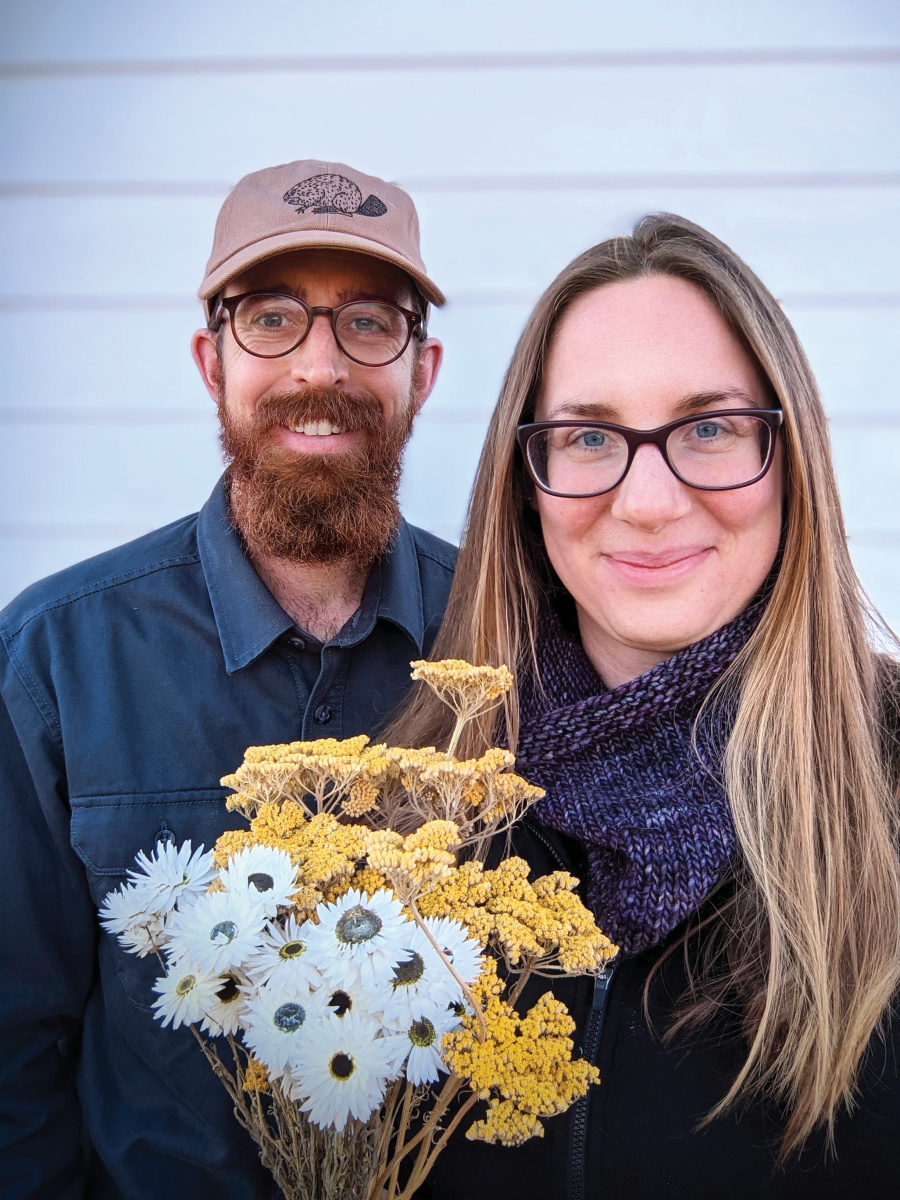
In Urbanna, Justine McFarland and her husband, Aaron, opened Tupelo Farm & Garden in 2019, named after the popular tree. The couple grows 7 acres of cut flowers as well as some vegetables.
“You name it, we grow it,” Justine McFarland says. “We grow a variety of annuals and woody plants too. I tend to pick more rare or unique colors because that’s satisfying for me to grow, but we also have your bestsellers like zinnias and sunflowers.”
After working for an organic farm in Vermont, the couple moved to Virginia when Aaron took a job in Richmond. Justine is also an artist, and flowers appealed to her creative side as well as her horticulture interests.
“I’ve always loved that flowers are an outdoor decoration but that you can also bring them inside or gift them to someone,” she says. To connect better with consumers and secure income throughout the year, Justine decided to start a flower Community Supported Agriculture (CSA) program at Tupelo Farm and Garden.
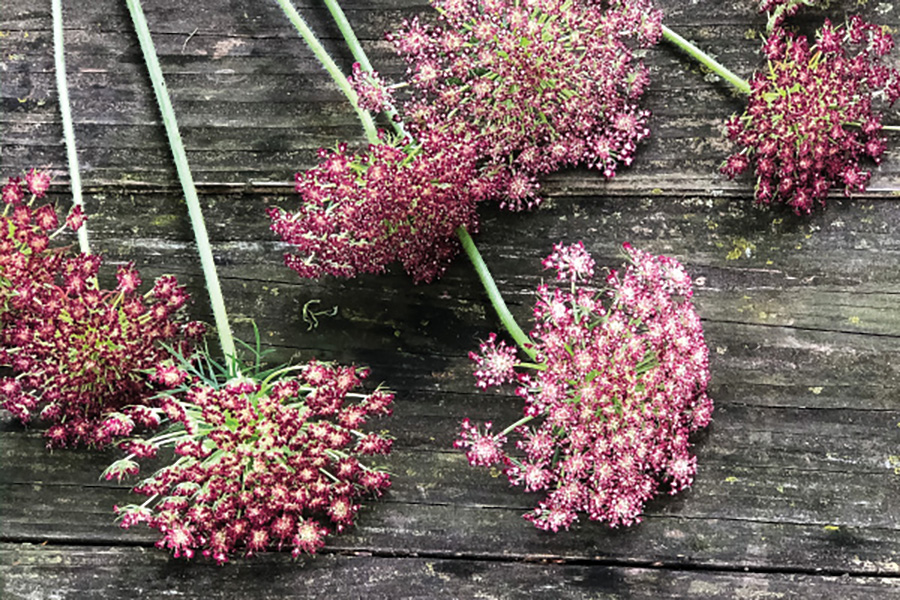
“CSAs were really common in Vermont, and I thought that would be a unique way to engage with customers,” Justine says. “It’s an educational opportunity, introducing them to new flowers, but also practical because it gives us income in the off-season. It’s fun for me to take consumers through the clear seasons, showing them the spring flowers versus fall flowers.”
Tupelo Farm & Garden also offers landscape installation and design and participates in the River City Flower Exchange, a co-op that allows local flower growers to connect with florists in a central location. Justine serves as the market manager of the exchange, allowing her to fill a larger role in the regional cut flower market.
“There are nine farms in the Exchange, and it allows florists to see the product before they purchase it,” Justine says. “All the farmers are owners in the business, and we’ve added an education arm so we’re doing workshops now. It’s been pretty cool.”
See more: Virginia’s Top Agricultural Commodities
Cut Flowers Cultivate a Niche
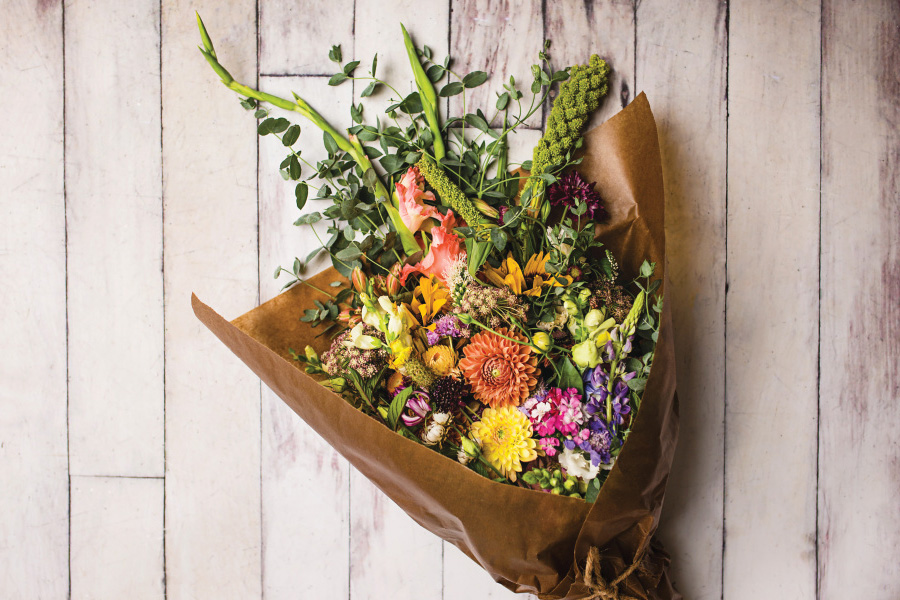
Currently, Virginia has about 191 floriculture producers, according to a recent U.S. Department of Agriculture report. Worth approximately $200 million, cut flowers accounted for $1.2 million of the total floriculture assets.
Both Hall and the McFarlands believe as exposure grows, the cut flower industry will grow with it.
See more: Minority Farmers Represent a Growing Sector of Virginia Agriculture




I love that you published this article! I am a micro urban flower farmer and one of 5 farms that make up the Tidewater Flower Cooperative. We grow in small urban fields and yards in the tidewater area and bring our locals fresh cut flowers grown just miles from their door. As a cooperative we provide florists and retail customers with the freshest cut flowers and most sustainably grown local blooms you can buy. As aware of the importance of buying local branches out from vegetables to flowers we hope more people choose to support local, for our economy and our environment.